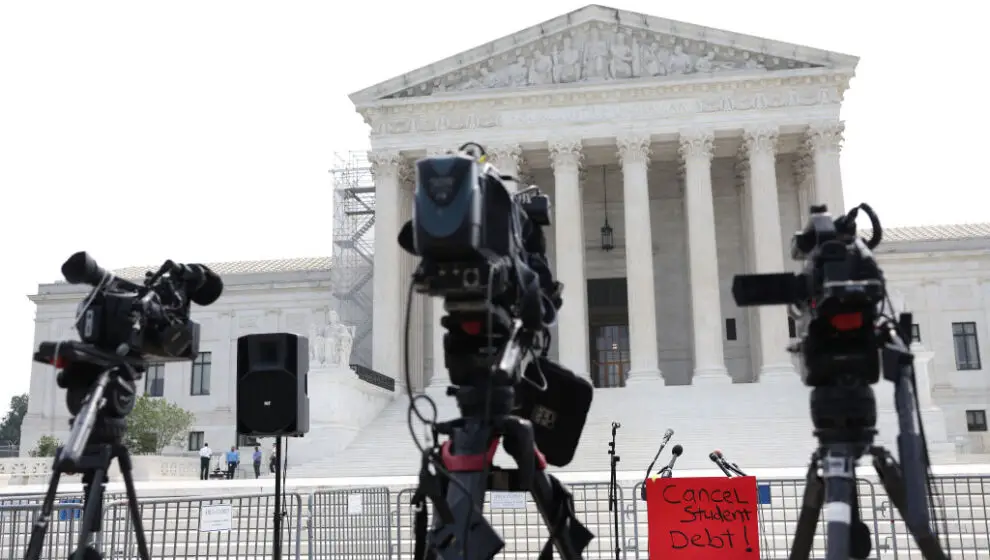The Supreme Court announced on Friday morning that it has stricken down the Biden administration’s student-loan-forgiveness plan as illegal.
Key Details
- On August 24, 2022, President Joe Biden announced an executive order providing up to $10,000 in debt cancellation for non-Pell Grant recipients and $20,000 in debt cancellation for Pell Grant recipients.
- On June 30, 2023, the Supreme Court of the United States ruled six to three that Biden overstepped his legal authority and struck down the $400-billion executive order.
- Writing the majority opinion, Chief Justice John Roberts writes that the court agreed with the arguments of six states’ filings against the law that the federal government’s emergency powers did not permit such an aggressive executive order.
- Justices Sonia Sotomayor, Elena Kagan, and Ketanji Brown Jackson wrote a dissent against the decision, arguing that it “overrides the combined judgment of the legislative and executive branches, with the consequence of eliminating loan forgiveness for 43 million Americans.”
- Biden responded Friday morning to the decision, promising “new actions to protect student-loan borrowers” and accusing Republicans of being “responsible for denying them the relief that [we have] been fighting to get to them.”
Why It’s Important
President Biden made two of the largest moves of his presidency last August with the signing of the Inflation Reduction Act and the signing of an executive order for student loan forgiveness—two decisions that rung very popular with young voters in the months before the midterm elections and helped the Democratic Party stem a devastating electoral loss into a nominal loss.
The forgiving program was designed to partially alleviate the $1.6 trillion in outstanding student-loan debt among young Americans. Still, it was heavily scrutinized by federal judges for working outside of the legislative procedure. The administration’s lawyers defended the order under the Health And Economic Recovery Omnibus Emergency Solutions Act, arguing that COVID emergency powers gave the president enough legal power to sign the order.
As we previously reported, this argument was highly scrutinized by critics who decried the executive order to unilaterally forgive debt as an illegal action that assumed too much power under the executive branch without seeking proper approval from the legislative branch. The Supreme Court agreed to take up the issue and heard two challenges to the issue—Department of Education v. Brown and Biden v. Nebraska.
The administration has reported that 43 million Americans were eligible under the program and that 26 million had already applied for student loan relief. President Biden has already promised to follow up on the decision with a renewed push for debt relief. Still, for the moment, millions of Americans have been left on the hook to pay off their loans as payments resume.
The decision could stand to bring about retaliation against the Supreme Court, which is already facing negative reception from its prior decisions to strike down Roe v. Wade abortion protections and affirmative action in college admissions. Prominent Democrat politicians like Senator Elizabeth Warren (D-MA) have accused the conservative-leaning court of being activistic and have pushed heavily for the Biden administration to pack the court with additional progressive judges. Still, this possibility remains unlikely with a severely divided Senate.
Justices Clarence Thomas and Samuel Alito have also faced several months of allegations over claims of financial impropriety and ethical concerns that have resulted in calls for both judges to resign. However, both judges defended themselves and have not faced Congressional scrutiny.
Republican politicians responded this month to the order by filing five bills attempting to address problems surrounding the issue of student-loan debt, pushing programs that help students to understand the burden and decision-making process of taking on expansive loans and limiting access to loans for career tracts that are unlikely to provide financial compensation for the debt, Fox Business reports.
